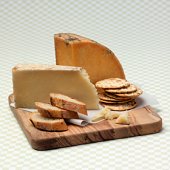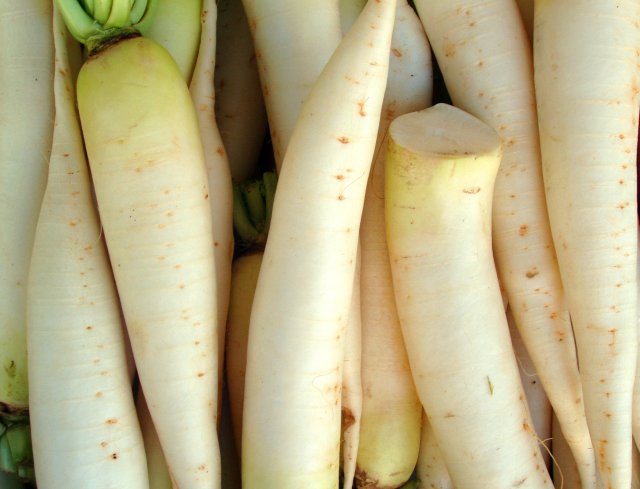 My recent post over at Green Options spurred a comment that organics are not affordable enough to be practical for average families. I find the comment extremely valuable because I used to think the exact same thing. It was a no brainer that organics were healthier for my family since they had no chemicals, pesticides, or dangerous additives but the price tag was hard to ignore. I wasn’t ready to double my grocery bill at that point. Now several years later when my household food is 90% organic, I see things a bit differently. All it took was a few frugal purchasing practices and a few changes in my thought process about my food and where it comes from.
My recent post over at Green Options spurred a comment that organics are not affordable enough to be practical for average families. I find the comment extremely valuable because I used to think the exact same thing. It was a no brainer that organics were healthier for my family since they had no chemicals, pesticides, or dangerous additives but the price tag was hard to ignore. I wasn’t ready to double my grocery bill at that point. Now several years later when my household food is 90% organic, I see things a bit differently. All it took was a few frugal purchasing practices and a few changes in my thought process about my food and where it comes from.
My first goal was to start replacing conventional foods that we used the most and had the most danger of accelerating our cumulative exposure to chemicals. Milk and eggs topped the list. By starting with these two items I saw only a small increase in my monthly grocery bill. When I found an organic supplier of raw milk the cost did go up significantly as the price tag was $8.00 a gallon. The cost, coupled with the fact that I was now actually able to drink milk for the first time in my life, prompted me to give up other household beverages I would normally buy to offset the cost. Soda went on the chopping block and good riddance. I was now buying organic, raw milk and organic eggs every week and there was no additional cost to me. I could do this. :)
I slowly made similar changes to my grocery list without dramatically affecting my bill. I was also becoming a savvier shopper.
I joined a local CSA or Community Supported Agriculture program that delivered fresh organic produce to my door every week. The fee was very reasonable and I ended up eating healthier and trying many new things. This arrangement was what spurred me to start putting Kale in smoothies since I had so much of it every week and few ideas on how to prepare it. Now my kids benefit from getting a Kale infused berry smoothie a couple times a week. I also started going to my local farmers market where the food is fresh and delicious and competitive with conventional foods because you are eliminating the middle man. And in my area the Amish are abundant so I make sure to frequent their homes often for their organic offerings. I just love driving through Amish country, passing horse drawn buggies, looking for signs boasting of farm fresh eggs or homemade noodles. It is an adventure.
Buying in bulk was the next step and this is still my favorite money saving tip. I buy organics in bulk from co-ops for wholesale prices. I also shop at Costco, which has a wonderful selection of organic foods and products. I can get frozen fruit, veggies, peanut butter, jam, crackers, soups, chocolate milk, soy milk, eggs, edaname, yogurt, maple syrup, tea, etc….all organic of course and at killer prices. And while it is not organic I love to buy wild caught salmon there too. It is beautiful and pink without the coloring added to farmed salmon and it is out of this world delicious.
Amazon also has a great selection of organic groceries and shipping costs are no obstacle since it is usually free if you spend over $25.00. Think of the gas money you save by having your groceries delivered to your door.
Coupons for organics were hard to find but I quickly found that if I visited the web sites for organic products that I liked and joined their mailing list I would get free coupons in the mail. Many of the sites also had printable coupons you could get immediately. I joined the advisory panel for Kiwi Magazine and got free magazines (which have coupons) and I also got coupons from affiliated companies. Mambo Sprouts is another source of coupons for organics. And don’t forget other discounts you can get at places like Whole Foods where they will give you a 5 cent credit for each bag that you bring in for your purchases. All these little savings can add up or at least equal a free organic chocolate bar!
The biggest change I made to my shopping regimen began with a change of attitude. You see I grew up in a household that was pretty green but one area that definately wasn’t was the amount of meat that was consumed. My dad was a meat and potatoes man. If the meal didn’t have meat (usually beef) then it just wasn’t a meal…it was more like a snack. It is no wonder that a large portion of my grocery bill was spent on meat and meat is expensive.
Around that time I read an article promoting vegetarianism. The article cited numerous reasons why meat consumption was harmful to the planet and I had to agree. Vegetarianism was not for me personally as I had already tried it for two years when I was a teenager and it did not seem to me the healthiest way for me to eat. I am a true omnivore and dare I say I found myself with an Omnivore’s Dilemma? :) It was then that I decided that my meat consumption needed to be reduced and I had to change my ideal of what a meal should be. Why must EVERY meal have a meat portion? Well, it no longer has a special place in every meal in our household anymore. Last week our favorite meatless meal was simple and delicious.
* Fresh raspberries, blackberries, and strawberries (local and organic) 
* Smoked Gouda (organic from Whole Foods and one variety was local)
* Flax and rye crackers (organic from Costco)
* Cooked yellow beats (organic from Whole Foods)
* 4 types of raw radishes including my personal favorite Daikon (mostly organic and local)
The meal was delicious and my kids loved it. I don’t feel as though I was missing out on anything in the least. In fact the smoked Gouda is so good I feel as decadent eating it as I would caviar. And all things considered the meal was very affordable.
Since organic meat and beef in particular are so expensive I find that I often end up buying more fish now. Wild caught salmon and catfish are big hits in our household and the abundance of healthy oils in fish makes them a better choice too. I make 2-3 fish meals a week and the price tag is much more kind.
I also incorporate more veggies into our meals as fillers. There is a great book called The Sneaky Chef with great recipes for hiding veggies in other foods so picky eaters don’t know the difference. There is even a recipe for hiding veggies in chocolate chip cookies.
All of these changes have been small and gradual but they have made a big impact on our lives, including better health, a more sustainable way of eating, and an AFFORDABLE organic diet.

